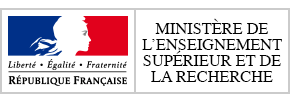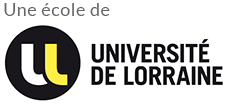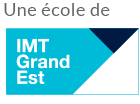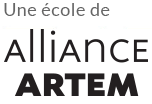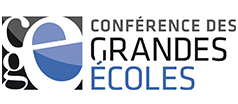Seven reasons to choose Mines Nancy
1. An appealing programme
A seamless pathway for holders of a DUT, BTS or second-year BUT technical diploma, an engineering degree highly sought after by companies, real career prospects.
2. Apprenticeship
The opportunity to become a specialised engineer by following an apprenticeship.
3. Differentiation
A large place is given to industrial projects, classes promoting creativity and initiative, and personal coaching.
4. International
A placement of at least 10 weeks internationally, joint degrees, option to sit the third year in one of over 80 partner universities.
5. Innovation and additive manufacturing
A national centre of excellence bringing together in one place scientific skills and digital equipment related to rapid product development, from image to prototype.
6. Employment
One and a half years of professional experience, close links with companies promising swift employability after graduation.
7. Extracurricular life
Extracurricular life in Saint-Dié links up with the 60 sports and recreational clubs and societies based at Mines Nancy.
Benefits of the course
Unique qualities
- Agility: The ability to be inclusive and collaborate with others, have solid scientific knowledge and work across professional boundaries.
- Creativity: Demonstrate imagination and ingenuity; dare to challenge conventions to design the innovations of tomorrow.
- Expertise: Apply rigorous methodology (experimentation, observation, modelling) to solve clearly defined scientific, technological and/or organisational questions.
- Innovation: Focus on progress, create the conditions for innovation and contribute to the positive development of society.
- Leadership: Have an entrepreneurial spirit, develop and realise ideas and combine economic principles and a socially responsible approach in a fluctuating environment.
- Inclusion: Understand and embrace other cultures, use difference as an advantage and develop culturally specific communication strategies.
- Responsibility: Act as a responsible and human-centred engineer and place the global challenges of sustainable development and social responsibility at the heart of your professional commitment.
First year
Goals
- Acquire the scientific fundamentals (mechanics, materials, etc.)
- Experience creativity and innovation
- Discover the requirements of working in industry through placements with companies
Programme :
- Creativity, Innovation: 30 hrs
- Product Design: 280 hrs
- Management: 104 hrs
- Scientific Studies: 156 hrs
- Industrial Projects: 36 hrs
- Business Skills: 16 weeks
- Humanities: 28 hrs
Second year
Goals
- Develop skills in the core activities of the design engineer and in management aspects
- Apply what has been learned during periods in business
Programme :
- Creativity, Innovation: 28 hrs
- Product Design: 316 hrs
- Management: 118 hrs
- Scientific Studies: 142 hrs
- Industrial Projects: 50 hrs
- Business Skills: 18 weeks
- Humanities: 14 hrs
Third year
Goals
- Manage innovation and design projects
- Put knowledge into practice through the work placement or graduation project
Programme :
- Creativity, Innovation: 40 hrs
- Product Design: 362 hrs
- Management: 116 hrs
- Scientific Studies: 32 hrs
- Industrial Projects: 120 hrs
- Business Skills: 20 weeks
Teaching themes
First year:
The first year consolidates fundamental knowledge through general and science classes. The company contributes its experience and students get a taste of a real industrial environment during the work placement. A coursework project helps develop the students’ creativity and innovation skills.
Second year:
The second year combines the teaching of industrial design with knowledge on mechanics and materials converging towards an industrial design approach. The work placement and the coursework project are designed to consolidate the student’s professional experience.
Third year:
In the third year, the students complete the design engineer course and carry out their professional project. The work placement is crucial and students often get their first step on the career ladder.
Detailed program
Teaching methods
Active learning
Academic courses are complemented by placements in companies and industrial projects. This well-balanced programme is designed to help the engineering student gradually build up their skills and sense of autonomy.
Course modules
- Creativity, Innovation
Goal: to activate and nurture creativity and a sense of innovation. - Product Design
Goal: to master the tools and methods of product design. - Management
Goal: to become proficient in the mechanisms of communication, skills management and leadership of multicultural and multidisciplinary teams. - English
Goal: to meet and exceed the level required for any engineer. - Scientific Studies
Goal: to master the scientific tools required for working as a product designer to a professional level. - Industrial Projects
Goal: to enable the student engineer to apply the methods and tools inherent to the digital sector, in the design, simulation, calculation and production of models or prototypes.
Industrial Culture
The Engineering course with the specialisation in Mechanical Engineering and a Design Engineering pathway is instructed by a teaching staff made up of research lecturers and industry professionals.
This is the hallmark of a course which, since it was introduced in 2000, has proven its promise to meet the needs of companies – usually by staying one step ahead of them. This industrial culture is the reason why the apprenticeship route was introduced in 2007. It also makes a big contribution to the excellent results achieved by Mines Nancy in terms of post-graduate employment.
Source of innovation
In Saint-Dié, project-based learning provides, with the LABinnov platform, a testing ground particularly favourable to the deployment of innovation.
Engineering students have access to the best of digital technology, from virtual reality to prototyping by way of additive manufacturing, including digital simulation and characterisation. Many of the R&D tools they will be called upon to use once they start their professional careers.
Projects
Project-based learning to hone the student’s creativity and sense of initiative
The project activity is a major component of the design engineering course.
It is linked to the product design class and gives students the opportunity to apply the methods and tools of a new digital sector – Rapid Product Development – and of project management: value analysis, creativity, functional analysis, market analysis, technology watch, design, functional analysis, specifications, CAD tools, calculation and digital simulation, additive manufacturing, prototyping and rapid tooling, collaborative work, innovation management, finance, communication…
The supervisory team always establishes a working group with a decision-maker, a facilitator, a project manager and resources in the different specialisations. Project management is practised during the projects.
Creativity, entrepreneurial spirit, economic considerations, communication with the supervisory team and with industrial partners are, above and beyond technologies, highly valued during the project assignment.
First-year project
This is an “innovation product design” project around a theme calling on the student’s knowledge of ergonomics and design in a “market/product/know-how” industrial environment.
The main aim is to develop a student’s creativity and then to realise the solutions in the form of models or prototypes, in line with the digital chain. From this study, students will then produce a product, as a single unit or in a very small run, using CAD technologies, rapid prototyping and tooling, additive manufacturing processes, industrial forming processes (contact moulding, thermoforming, etc.) or machining. Student engineers work in teams of two or three. The project is carried out during the academic year, starting in October, and presented in June. The subject of the project is not determined by an industrial partner; the theme is proposed by InSIC. However, the approach taken and the final outcome need to be credible enough to pique the interest of the business leaders in attendance during the presentation. The final project is presented in the form of a physical mock-up. Supporting documents produced by the students to explain their work can include reports, posters, slideshows and others.
End-of-studies project (second and third year)
This is an end-of-studies project involving the design of a product, system or machine working in relation with an existing company or a company created for the project. The project aims to equip students with a professional approach to product (or tool) development put in practice by producing a prototype or an industrial demonstrator. Student engineers work in teams of two or three. The project starts in March of the second year and ends in the third year in March. The project is divided into two parts:
- Y2: four months from March to the end of June. Number of hours: 50 hours
Goal: Define the concept for an industrial solution in the form of a preliminary project. - Y3: six months from September to March. Number of hours: 120 hours
Goal: Finalise the project by qualifying the product or machine and producing a prototype supported by an industrialisation report.
The end-of-studies project is completed before the student leaves to complete their third year placement (the project may be continued within the company).
The student will enter into a contractual agreement with the company setting the guidelines and the resources required (management human resources, equipment, etc.).
Students have access to huge state-of-the-art technological resources for designing and making physical prototypes (virtual reality room, machining centre at InSIC and CIRTES, additive manufacturing, pilot schemes for the INORI innovation platform, etc.).
Work placements
A programme interspersed with placements ensuring the course matches the student’s career plans as closely as possible
The aim is to provide student engineers with the professional development they need to seamlessly enter the working and corporate worlds.
This is why the programme runs in close collaboration with industry, in particular through work placements.
Students are actively involved in the process and are required to find their own placements in line with their personal career plans.
We feel it is important to support the students in defining their career plan so they are best positioned for success in their future endeavours.
Student engineers are prepared with techniques on how to find placements from the start of the course.
Students can carry out their placement:
- in any type of company: SMEs and SMIs, large groups, research centres
- in France or overseas
- in any sector of activity: aeronautics, mechanical industries, luxury, construction, transport, shipbuilding, sports, health, rail, automotive, packaging, energy, etc.
In the first year
A 16-week placement (from start of January to end of April) in a design or methods office. The student works as an experienced senior technician on a project related to their area of study, the development and/or fine-tuning of a product or tool.
The goals are: to be an integral part of a team, learn more about the role of engineer, take initiatives and organise, lead, plan and implement resources and methods. SMEs offer a highly constructive environment for first-year placements.
In the second year
The placement period is 18 weeks (mid October to end of February) as an assistant engineer, preferably in a Research & Development or Design & Development office for products or tools.
The project fits into a programme designed for conducting trials and feasibility testing in order to put a product or process through an experimentation or fine-tuning phase.
The goals are: to learn more about working in the R&D field, develop and lead experiments, work internationally, become autonomous and develop your scientific and technological knowledge.
In the third year
The internship lasts at least 20 weeks (mid March to end of July), and focuses on an engineering project for which the trainee is given complete or partial responsibility.The project always relates to the design of a product and/or tool, but in an innovation-driven or technological development environment that helps the company to implement new methods and/or technologies.
The choice of placement is crucial as it can lead to the student’s next job.
Help with career and personal plans
Professional and personal development
Each student engineer should use their education as an opportunity to build their professional and personal plans.
For students, the 63 weeks of work placements are an opportunity to apply the methods and technical knowledge acquired, exercise responsibilities and take part in real-life industrial projects. These experiences will shape the students and guide them in their career plans based on the size of the company, its sector of activity, its missions, etc. Personal support will be provided through exchanges with the placement supervisor at the school and in the company.
For apprentices, the student’s project is developed during the interviews held with the apprenticeship supervisor in the company and with the school’s academic tutor.
Links with business
Highly involved economic partners
This course and its associated research are the fruit of a particularly innovative scientific, technological and industrial partnership.
Mines Nancy delivers this programme in the technological and industrial environment of the VIRTUREAL Centre in Saint-Dié-des-Vosges, part of GIP-InSIC (Higher Institute of Design Engineering). Housing GIP-InSIC alongside CIRTES and PFI INORI, this local centre of excellence dedicated to Rapid Product Development was identified in a national study conducted by the Carnot Institute in July 2016 as a leading player in the field of additive manufacturing in France.
The programme is proud to have the following partners:
- CIRTES (European Research Centre for Rapid Prototyping and Tooling), a contract research structure (SRC) and member of PRETT Lorraine and the Carnot Institute ICEEL,
- IMT (Institut Mines-Télécom), a public higher education and research institution for innovation whose schools rank among the very best top-tier schools in France,
- LEMTA (Laboratory of Energetics and Theoretical and Applied Mechanics), to which the GIP-InSIC research team is attached, and Institut Jean Lamour.
Following the change in status of the Écoles des Mines on 1 January 2017, the members of GIP-InSIC are all from the University of Lorraine/Mines Nancy, IMT or CIRTES. The management of GIP-InSIC is in close and regular contact with the management of these partners, and the centre of excellence of Saint-Dié-des-Vosges is recognised by the Institut Mines Télécom, founder member of the Industry of the Future Alliance.
In an initiative led by:
- the French Ministry of Higher Education and Research and the Ministry of Industry,
- with the support of the French Plastics Processing Federation, the Union of Metallurgy Industries and Trades, the Federation of Mechanical Industries, the National Syndicate of Rubber and Polymers, leading industrial groups in the sector and innovative Lorraine-based SMIs,
- and the strong involvement of the European Union as well as local authorities, in particular Saint-Dié-des-Vosges city council.
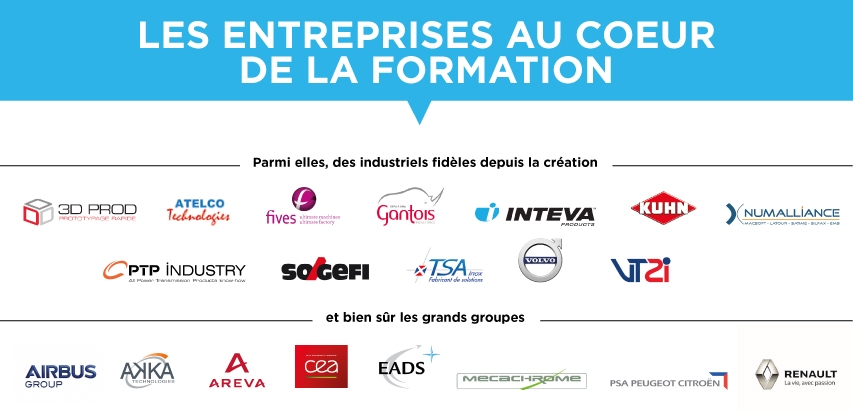
Admission
Student engineers in their own right, apprentices benefit from individual support that involves the university and their host company.
Taking an apprenticeship is an opportunity to finance your studies: the engineering student become an employee under a three-year fixed-term contract. Their wage depends on age and years of study. The French Ministry of Employment has created a wage simulator
Conditions
Admission is based on a review of the candidate’s academic record followed by an interview. Prerequisites:
- Hold a DUT, BTS or second-year BUT in design, mechanics or plastics processing;
- Be pre-selected by the jury;
- Be under the age of 30 at the start of the course (age limit being piloted in the Grand Est region);
- Have signed a three-year apprenticeship contract with a company by 1 September.
From studying to working
Ahead of admission, the CFAI (Training Centre for Industrial Apprentices) in Lorraine helps candidates look for a host company and approves their apprenticeship contract. Once onboarded, engineering students are monitored by an apprenticeship supervisor and an academic tutor. When it comes to joining a company, they can count on the school’s industrial partners. At their head, the Lorraine Institute of Engineering Techniques of Industry (ITII) brings together academic and industrial partners, mainly through the Union of Industries and Trades of Metallurgy (UIMM) based in Lorraine.
Double degree
Work placement or academic exchange with a host university, with engineering students spending at least 10 weeks abroad.
Particular attention is paid to the teaching of English. Other languages (German, Spanish, Italian, Russian, Japanese, Chinese) are optional or accessible on a voluntary basis.
For students following the “standard” course, the third year of teaching can be completed in a foreign university (Sweden, Spain, Germany or Canada) or a different French university.
The second-year industrial work placement is the one that can most easily be spent abroad. There are plenty of opportunities in most European countries as well as in North America and Asia.
Engineering students and apprentices in the class recruited in June 2013 will all be required to spend at least 10 weeks abroad.
The possibility of obtaining a double degree:
Mines Nancy and the Mannheim Hochschule signed a double degree agreement in 1994, which allows German-speaking engineering students to spend 18 months in Germany with financial support from the Franco-German University.
The first year at the Higher Institute of Design Engineering is accompanied by specific language preparation
The second year is spent at the Hochschule in Mannheim, and in the middle of the year the Maschinenbau bachelor’s degree is obtained after a presentation. The engineering students resume the French part in the third year, and for French students the third-year work placement takes place in Germany or another country.
Following the validation of the two courses, students obtain the Maschinenbau Master’s and the Mines Nancy Engineering degree (Master’s) with a specialisation in Mechanical Engineering, Design Engineering pathway.
With student status
Admission with student status
For the first year: students who enrol on the course mostly hold a DUT, BTS or second-year BUT in design, mechanics or plastics processing.
The university also accepts students from the PT and TSI preparatory classes, Polytechnic Preparatory Cycle (CPP), preparatory classes for the Grandes Ecoles ATS (Advanced Technician) or holders of vocational degrees (Licences Professionnelles – LP).
The intake includes around 40 engineering students with student or apprentice status.
2023 timetable:
- Online enrolment from 1 February to 14 March 2023 at: https://alternance.imt.fr/dossier-candidature/
- 29 March 2023: review of applications
- 7 April 2023: interviews before the Jury
For the second year: the course is open to students with a Master’s (level M1) or a title or educational level deemed equivalent in a professional sector, in particular candidates from courses delivered by a Professional University Institute (IUP) or the National Conservatory of Arts and Crafts (CNAM).
With apprentice status
Admission with apprentice status
For the first year: holders of a DUT, BTS or second-year BUT in design, mechanics or plastics processing, under 30 years of age at the start of the course and who have signed a three-year apprenticeship contract with a company, validated by the CFAI (training centre for industrial apprenticeships) in Lorraine; admission based on an assessment of the candidate’s academic record, followed by an interview.
However, the Teaching Council for the course reserves the right to refuse an apprenticeship candidate whose host company does not have the resources for tutoring or offer projects compatible with an engineering programme specialising in design engineering.
For all candidates, admission is determined based on an assessment of their application and decision by a jury based on candidates’ educational level and motivation.
In the application, the candidate can choose the status of student or apprentice and specify their order of preference. The jury ranks the students following the interview stage. A candidate’s enrolment on the course depends on their ranking and choices.
Apprentices can only join the course once an apprenticeship agreement is signed by the candidate and a host company.
-
Eligible DUTs and second-year BUTs
• Mechanical and Production Engineering
• Industrial Engineering and Maintenance
• Industrial Logistics Performance and Organisation
• Materials Science and Engineering -
Eligible BTS
• Industrial Product Design
• Industrialisation of Mechanical Products
• Microtechnology Design and Industrialisation
• Bodywork Design and Production
• Engineering Technical Assistant
• Plastics Processing
• Product Design
• Design and Production of Materials Forming Tools
• Cast Alloy Forming
• Materials Forming by Forging
• Industrial Maintenance
• Mechanics and Industrial Automation -
ATS preparatory classes
-
PT or TSI preparatory classes
-
POLYTECHNIC PREPARATORY CYCLE (CPP): INP Preparatory Cycle
-
Vocational University Degrees (LUP)
The university fees are the same as are paid to any public higher education institution.
2023 timetable:
- Online enrolment from 1 February to 14 March 2023 at: https://alternance.imt.fr/dossier-candidature/
- 28 March 2023: review of applications
- 7 April 2023: interviews before the Jury
Continuing education
For the second year: as part of its continuing education programme, the school also accepts technicians in employment holding a DUT or BTS with at least three years’ proven professional experience.

Student enrolment
Prepare your application
Admission is based on a review of the candidate’s academic record followed by an interview.
Prerequisites:
- Hold a DUT and second-year BUT or a BTS in design, mechanics or plastics processing.
- Be pre-selected by the jury.
- Be under 30 years of age when the course begins
Where ?
On the single recruitment platform for the schools of the Institut Mines-Telecom (IMT)
Fees and financial support
Enrolment fee
about €77/€22 for scholarship holders
Price reduction if also applying for other IMT courses
Tuition fees
€2,500 per year
Student Life and Campus Contribution (CVEC)
around €92 per year
Scholarship students
Scholarship students are exempt from tuition and CVEC fees
Financial support
Students can benefit from scholarships and housing assistance
Apprentice enrolment
Prepare your application
Admission is based on a review of the candidate’s academic record followed by an interview.
Prerequisites:
- Hold a DUT, BTS or second-year BUT in design, mechanics or plastics processing.
- Be pre-selected by the jury.
- Be under 30 years of age when the course begins
- Have signed a three-year apprenticeship contract with a company by 1 September.
Where ?
On the single recruitment platform for the schools of the Institut Mines-Telecom (IMT).
Fees and financial support
Enrolment fee
about €77/€22 for scholarship holders
Price reduction if also applying for other IMT courses
Tuition fees
Free
Student Life and Campus Contribution (CVEC)
around €92 per year
Scholarship students
Scholarship students are exempt from tuition and CVEC fees
Financial support
Students can benefit from scholarships and housing assistance
Employability
Apply
Prepare your application
Admission is based on a review of the candidate’s academic record followed by an interview.
Prerequisites:
- Hold a DUT, BTS or second-year BUT in design, mechanics or plastics processing.
- Be pre-selected by the jury.
- Be under 30 years of age when the course begins
Where ?
On the single recruitment platform for the schools of the Institut Mines-Telecom (IMT)
Fees and financial support
Enrolment fee
€77/€22 for scholarship holders
Price reduction if also applying for other IMT courses
Tuition fees
€2,500 per year
Student Life and Campus Contribution (CVEC)
around €92 per year
Scholarship students
Scholarship students are exempt from tuition and CVEC fees
Financial support
Students can benefit from scholarships and housing assistance
Stage 1
Stage 2
29 March 2023:
Initial selection by a jury based on application forms
Stage 3
7 April 2023:
Final selection interview
Course begins
September 2023
Academic year begins for all engineering students in the Mechanical Engineering specialisation, Design Engineering pathway, in Saint-Dié-des-Vosges
Prepare your application
Admission is based on a review of the candidate’s academic record followed by an interview.
Prerequisites:
- Hold a DUT, BTS or second-year BUT in design, mechanics or plastics processing.
- Be pre-selected by the jury.
- Be under 26 years of age when the course begins
- Have signed a three-year apprenticeship contract with a company by 1 September.
Where ?
On the single recruitment platform for the schools of the Institut Mines-Telecom (IMT).
Fees and financial support
Enrolment fee
about €77/€22 for scholarship holders
Price reduction if also applying for other IMT courses
Tuition fees
Free
Student Life and Campus Contribution (CVEC)
around €92 per year
Scholarship students
Scholarship students are exempt from tuition and CVEC fees
Financial support
Students can benefit from scholarships and housing assistance
Stage 1
From 1 February 2013 until 14 March 2023:
Applications open at: https://alternance.imt.fr/produit/ingenierie-de-la-conception
Stage 2
29 March 2023:
Initial selection by a jury based on application forms
Stage 3
7 April 2023:
Final selection interview
Course begins
August/September 2023
For apprentice engineers, start of apprenticeship for a period of 15 days.
Contact
You want to contact us about the training Engineering degree with a specialisation in Mechanical Engineering – Design Engineering pathway (IC) ? Complete the form below :

